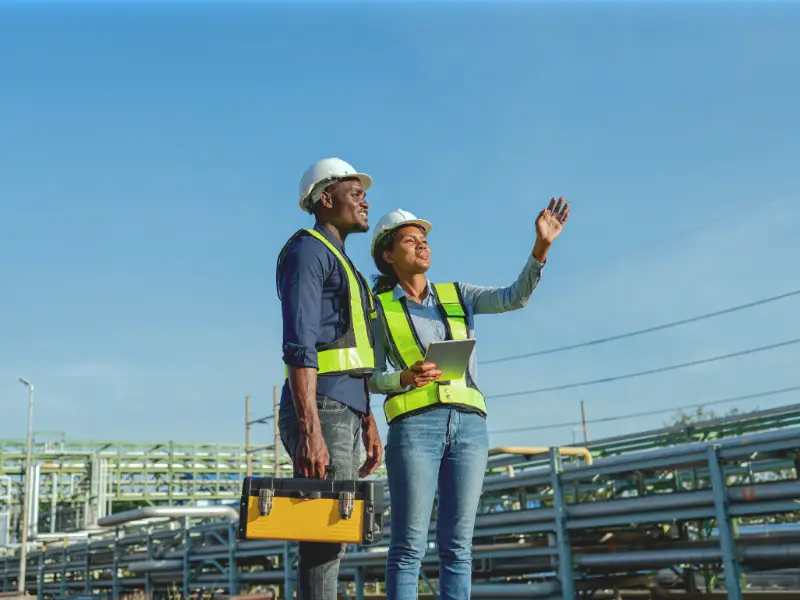
Utility surveys are a crucial aspect of any construction project, serving as the foundation for planning, design, and execution. These surveys help identify the location, type, and condition of existing utilities such as water, gas, electricity, telecommunications, and sewer lines.
By providing comprehensive information about underground and aboveground utilities, utility surveys mitigate risks, ensure safety, and facilitate efficient project management.
This article explores the importance of utility surveys in construction projects, highlighting their benefits, methods, and the potential consequences of neglecting this critical step.
Importance of Utility Surveys
1. Risk Mitigation and Safety
One of the primary reasons for conducting utility surveys is to mitigate risks and ensure the safety of construction personnel and the public. Accidental damage to utility lines can lead to dangerous situations, including gas leaks, electrical hazards, and water main breaks.
These incidents can cause injuries, fatalities, and significant property damage. By accurately identifying utility locations, construction teams can avoid these hazards, ensuring a safer work environment.
2. Preventing Project Delays and Cost Overruns
Unexpected encounters with uncharted utilities can cause significant project delays and increase costs. If utility lines are damaged during construction, it can halt progress while repairs are made, leading to downtime and additional expenses.
Utility surveys help prevent these interruptions by providing detailed information about utility locations, allowing for better planning and coordination. This proactive approach reduces the likelihood of costly delays and helps keep the project on schedule and within budget.
3. Regulatory Compliance

Construction projects are subject to various regulations and standards to ensure safety and environmental protection. Utility surveys help meet these regulatory requirements by providing accurate data on existing utilities.
This information is essential for obtaining necessary permits and approvals from local authorities. Non-compliance with regulations can result in fines, legal disputes, and project shutdowns. Utility surveys help avoid these issues by ensuring that all construction activities adhere to established guidelines.
4. Design Optimisation
Accurate utility information is vital for optimizing the design and layout of construction projects. Knowing the precise location of utilities allows architects and engineers to design structures and infrastructure that avoid conflicts with existing utility lines.
This optimization reduces the need for costly design changes and rework during construction. It also enables the efficient integration of new utilities into the existing network, enhancing the overall functionality of the project.
5. Enhancing Communication and Coordination
Utility surveys provide a common reference point for all stakeholders involved in a construction project, including contractors, engineers, utility companies, and local authorities.
This shared information enhances communication and coordination, ensuring that everyone is aware of the utility locations and any potential risks. Improved collaboration leads to more efficient project execution and reduces the likelihood of misunderstandings or errors.
Methods of Utility Surveys
1. Ground-Penetrating Radar (GPR)
2. Electromagnetic Induction (EMI)
3. Radio Frequency Identification (RFID)
4. Acoustic Locating

5. Visual Inspection and Record Review
Visual inspection and review of existing records are essential components of utility surveys. This approach involves examining utility maps, plans, and as-built drawings to gather information about the location and condition of utilities. Field inspections help verify the accuracy of these records and identify any discrepancies.
Consequences of Neglecting Utility Surveys
1. Increased Risk of Accidents
2. Project Delays and Increased Costs
3. Legal and Regulatory Issues
4. Design and Construction Conflicts
5. Damage to Utility Infrastructure
Accidental damage to utility infrastructure can disrupt essential services, impacting businesses and residents. This can lead to public dissatisfaction and damage the reputation of the construction company. Utility companies may also seek compensation for damages, increasing the financial burden on the project.
Also check: The benefits of utility surveys for infrastructure planning
Conclusion
Utility surveys are an essential component of any construction project, providing critical information about the location, type, and condition of existing utilities. By mitigating risks, ensuring safety, preventing delays, and facilitating regulatory compliance, utility surveys contribute to the successful planning, design, and execution of construction projects.
Employing various survey methods, such as GPR, EMI, RFID, and acoustic locating, helps gather accurate utility data, enhancing communication and coordination among stakeholders. Neglecting utility surveys can have severe consequences, including increased accidents, project delays, legal issues, and damage to utility infrastructure. Therefore, investing in comprehensive utility surveys is vital for the smooth and efficient completion of construction projects.




